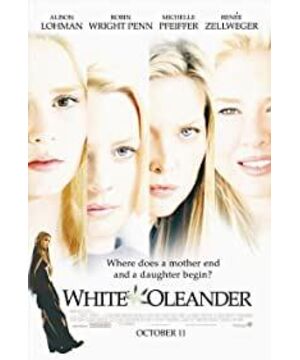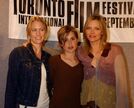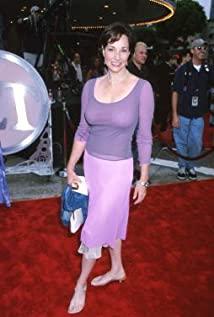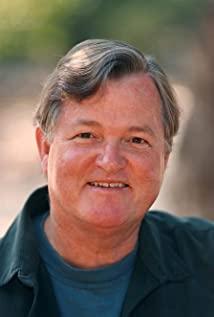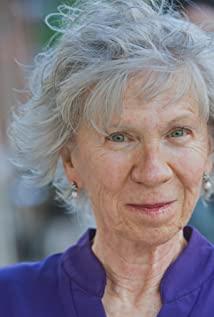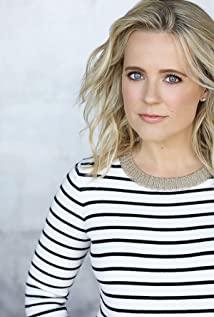The mother fox will drive the little fox out of the house when the little fox first learns to hunt and let it live independently. If the little fox doesn't go, the mother fox may even kill it.
Many people think the story of the fox is very inspirational, how "independent" - you see, foxes can be independent, and we humans should let go of our children and let them fly freely.
The movie "White Oleander" expresses a similar meaning: a mother lives independently and strong for her daughter, does not depend on a man, and does not hesitate to play tricks and tricks to deprive her daughter of the right to be happy.
("White Oleander" stills, mother Ingrid and daughter Astrid)
The difference: these two supremely beautiful mothers and daughters are not foxes, but white oleanders—beautiful, highly poisonous plants.
(Mother Ingrid)
Mother Ingrid is not only like a white oleander, she also loves oleander.
Why do you say she looks like a white oleander? Because: Oleander is a very beautiful and highly poisonous flower. And Ingrid is such a woman, beautiful and vicious, who poisoned her boyfriend with white oleander because she cheated on him.
A 3-gram oleander can poison a person. Ingrid, the heroine, soaked a white oleander in milk (see the picture above), killed her boyfriend, and went to jail.
Ingrid, who likes to wear a white shirt, is like a white oleander, beautiful, glamorous, seductive, and kills people .
(Oleander-like mother Ingrid)
Because of this murderous white oleander, the lives of daughter Astrid and mother Ingrid have been completely changed, which is one reason why the movie is called "White Oleander".
After Ingrid killed her boyfriend and went to jail, her daughter Astrid became an orphan. She had never seen her father, and now she has lost her mother. She can only move between foster homes and child welfare homes.
She inherited her mother's beauty.
(daughter Astrid)
But beauty is not always a good thing , especially in a life of ups and downs, beauty means bad luck.
Astrid had a happy time in the first foster home, but because of some ambiguous feelings between the host and her, the hostess got angry and shot her.
After the disaster, Astrid returned to the children's welfare home. In the children's orphanage, she was envied because of her beauty and bullied by the bad boys of the orphanage.
Fortunately, Astrid learned to be strong. She cut off her beautiful long hair, held a dagger to the bad boy's neck in the middle of the night, and told her "the next time you and your friends argue with me, I'll cut your throat while you sleep. ".
Beautiful, fierce and vicious, daughter Astrid inherited the character of her mother Oleander.
At the same time, Astrid met a confidant in the children's welfare home. He was also a fallen man. This boy was lonely and quiet. He also liked to paint. He had the face of an artist.
(The boy Astrid met at the child welfare home)
But they didn't get together in the end, because the mother in prison told Astrid: You can't rely on a man, you can't give yourself to a man because he's good to you, you have to figure out what you want.
Ingrid said, be yourself and don't be changed by others.
Astrid listened to her mother's teachings, and she moved out of the child welfare home, leaving the boy and entering another foster home.
The two teenagers cuddled each other under the night sky, looked at the starry sky, and watched the Ferris wheel. These became the beauty hidden in Astrid's heart and deeply moved the audience.
Astrid entered a new foster home.
The hostess of this house is an actress and the host is a producer. They live in seaside villas, standard middle-class families.
The male host is out of the company all the year round, and Astrid accompanies the hostess at home, they are like sisters.
However, after the mother in prison came into contact with the mistress, everything changed - the mistress first quarreled with her husband, and finally committed suicide, dying in the same bed next to Astrid.
The mother, Ingrid, said that the hostess was a weak chicken and an appendage that could not be separated from men. Astrid felt that her mother was depriving her of her right to happiness, and she wanted to stay away from her.
So, she began to become a problem girl. She dressed herself up as a troubled teenage girl and stayed with a Russian vendor who was at the bottom of the market.
She wears heavy makeup, tattoos, smokes, hurts herself, and takes revenge on her mother.
During her mother Ingrid's appeal, Astrid saw her mother again, who asked her to testify against herself in order to reduce her sentence. But at this time, the daughter determined that her mother had been depriving her of her right to happiness. She has become a deal is a deal with her mother.
Through the transaction, the mother told Astrid about her background, and Astrid was going to help her mother with perjury.
Astrid asked her mother with tears in her eyes: Are you willing to trade the rest of your life for me? How she wished her mother could give her an affirmative answer. However, Ingrid hesitated. This time, and for the last time, Astrid was completely desperate for her mother. She decided to testify for her mother in court and complete the transaction according to the agreement between the two before. Love has nothing to do, just a transaction.
(Even in prison, mother Ingrid is still beautiful)
But no one expected the ending. See for yourself, so I won't spoil any further.
If you want to watch a movie, look carefully at the top of the first picture in this article.
The film, adapted from the novel "The White Oleander", received a high score of 8.1 after being made into a film.
The film is delicate and delicate. It is not only a family drama, but also a youth film, and it is also a growth documentary of problematic family problems. After watching the film, you can't help but sigh: our youth film is a terminal illness caused by an abortion, while others' Youth movies are really different.
This movie has a very deep connotation, which can be watched in three layers.
On the first level, on the surface, the movie is showing the love and killing of a pair of characters between mother and daughter. The mother protects her daughter and is jealous of her daughter. She never wants her to be happy.
The second level of meaning: This kind of love and killing is actually another form of maternal love. The injured mother Ingrid, in order to keep her daughter Astrid from harm, can only constantly stimulate her and temper her armor.
The third meaning: In a patriarchal society, the situation of women is still difficult. On the surface, the mother and daughter of the characters do not depend on men, and there is no official male protagonist in the whole film, but everything is caused by men.
Including the formation of the mother Astrid's character, the situation of the daughter's exile, and the ups and downs of the mother and daughter life.
The movie tells us a sad fact: on the surface, women can be far away from men, strong and beautiful, like poisonous oleanders, but at a deeper level, women's fate is still controlled by men .
Do you agree with this view? Leave a message to share with you.
View more about White Oleander reviews


